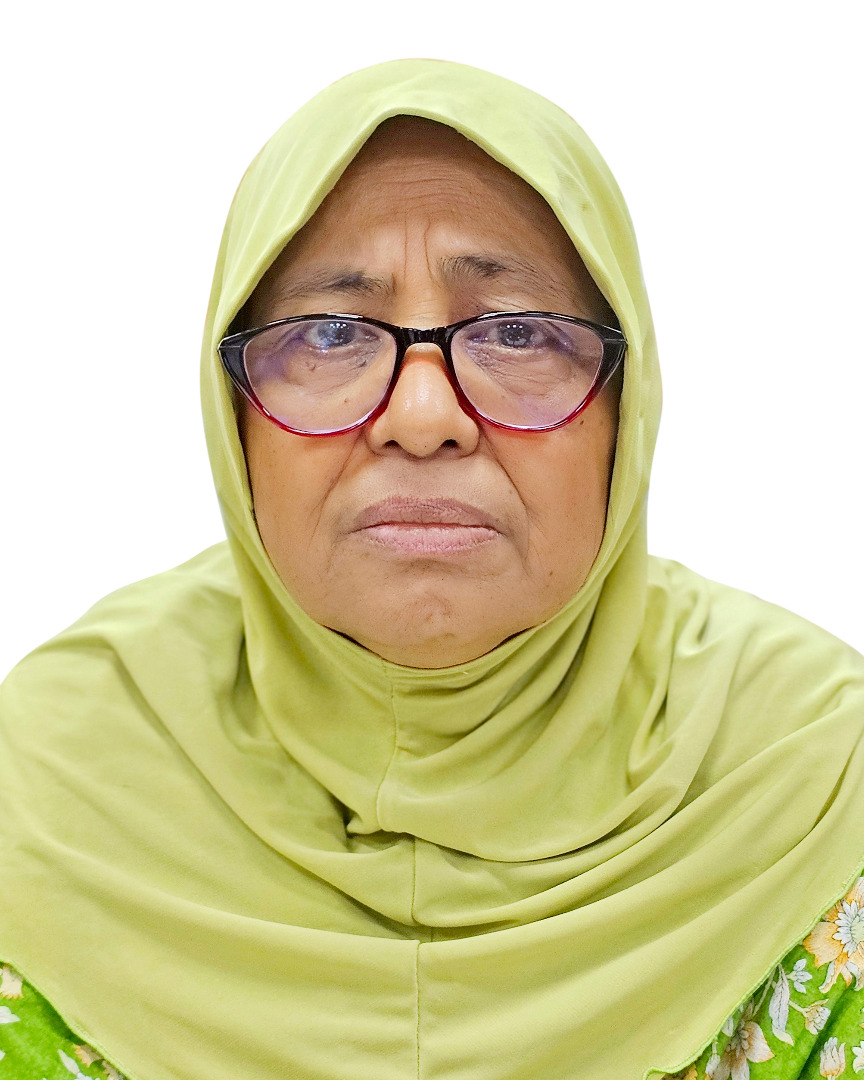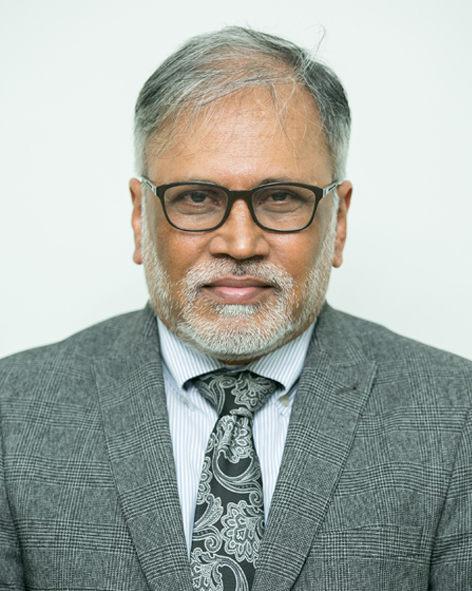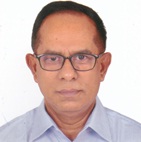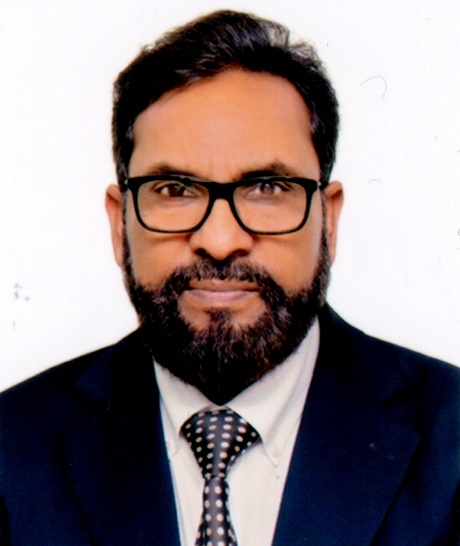ভ্যাকসিন প্রকল্প
| Name of the project | : | Establishment of Essential Biotech and Research Center at Gopalganj | |
|---|---|---|---|
| Sponsoring Ministry / Division | : | Ministry of Health and Family Welfare /Health Services Division. | |
| Project implementation period | : | a) Date of Commencement : January, 2024 b) Date of Completion : December, 2030 |
|
| Estimated cost of the project (Taka in Lac) | : | Total : 301,500.00 GOB : 31,132.73 Project Aid (PA) : 267,500.00 (USD 250.00 Million) Own Fund : 2,867.26 |
|
| Mode of Financing | : | Government of Bangladesh (GoB), Asian Development Bank (ADB) and Own Fund. | |
| Project Site | : | The project will establish a 6.85 acres plant for VTD manufacturing adjacent to EDCL’s third manufacturing plant at Gopalganj. | |
Objectives & Target of the product:
- To establish a state-of-the-art Vaccine, Therapeutics & Diagnostics (VTD) bio-manufacturing facility.
- Establish Fill-Finish Facility.
- To establish a Vaccine Full Scale Bulk Manufacturing Facility.
- To establish a Research Center for Full Pledge Research & Innovation.
- Robust Extended Program for Immunization (EPI).
- Resilience and Pandemic Preparedness.
- Vaccine and National Bio-Security.
- Foreign Exchange Contribution.
- Climate First Facility.
Goal /Outcomes:
- -- To establish a state-of-the-art Vaccine, Therapeutics & Diagnostics (VTD) bio-manufacturing facility.
- -- Establish Fill-Finish Facility.
- -- To establish a Vaccine Full Scale Bulk Manufacturing Facility.
- -- To establish a Research Center for Full Pledge Research & Innovation.
- -- Robust Extended Program for Immunization (EPI).
- -- Resilience and Pandemic Preparedness.
- -- Vaccine and National Bio-Security.
- -- Foreign Exchange Contribution.
- -- Climate First Facility.
The facility will be established in three project phases:
Phase I: To establish Fill-finish Manufacturing Facility
The first phase will focus on fill-finish manufacturing and the operations shall commence in the year 2027 for:
- Vaccines
- Therapeutics
- Diagnostics
Research & Development (R&D) facility:
The R&D facility will be set up to check and develop the manufacturing of the said vaccines through technology transfers.
Targeted products to be manufactured within the year 2027
Vaccines:
- HPV (Human papillomavirus vaccine)
- JE (Japanese Encephalitis)
- TCV (Typhoid Conjugate vaccine)
- MCV (Meningococcal vaccine)
- COVID-19
- bOPV-10 (Bivalent Oral Polio Vaccine)
- TD-10 (Tetanus and Diphtheria)/TT
- Cholera
- Influenza
Therapeutics:
- Erythropoietin (EPO) 2000, 3000, 5000 IU
- Interferon 4.5 MIU (normal action) & Pegylated-interferon (long action) injection
- Filgrastin / G-CSF(Granulocyte-colony Stimulating Factor)
Diagnostics:
- Antigen Test
- PCR Test kits
- Human & Veterinary diagnostics products for rapid test kit
- Human & Veterinary diagnostics products ELISA kits (veterinary use)
Phase II: To establish Bulk Manufacturing including Fill-finish
- The second phase will focus on full-scale bio-manufacturing including more fill-finish operation and the manufacturing shall commence in the year 2029
- Targeted products to be manufactured within the year 2029
Vaccines (Fill-finish):
- IPV (Inactivated Polio Vaccine)
- Penta (Diphtheria, Pertussis, Tetanus, Hepatitis B and Hib)
- PCV 10 valent (Pneumococcal Conjugate Vaccine)
- Dengue vaccine
- Vaccine for COVID-19
Full-Scale (Bulk) Manufacturing:
- HPV (Human papillomavirus vaccine)
- TCV (Typhoid Conjugate vaccine)
Live vaccine- secondary packaging:
- BCG-20 (Bacille Calmette-Guérin)
- MR (Measles-Rubella vaccine)
- BOPV-10 (Bivalent Oral Polio Vaccine)
- Rotavirus vaccine (RVV)
Therapeutics:
- rPTH (Rat Parathyroid Hormone)
- Rituximab (monoclonal antibody) 10 mg/ ml
- Adalimumab
- Bevacizumab (100mg/400mg)
- Trastuzumab (440 mg/20ml) Breast anticancer
- Insulin
Phase III: Establishment of Research Center Activities
- To establish Research & innovation Centre/unit for developing novel vaccine, biologics, cell and gene bases therapeutics.
- To incorporate new technologies and approach to improve biotech product like vaccine, therapeutic etc development and optimise production processes.
- To conduct Regulatory approval from regional like DGDA and from WHO-PQ/USFDA to review the clinical trials.
The proposed project could initiate a series of chain reactions that have the potential to convert Gopalganj into the world's "vaccine village." The strategic vision is to set up a comprehensive eco system, spanning from basic sciences to drug discovery and high value manufacturing that will be a critical step towards ensuring a healthy and prosperous future for Bangladesh.
Project Rationale -
Increased Accessibility: Having its own vaccine manufacturing facility would increase Bangladesh’s access to vaccines. Currently, Bangladesh relies on imported vaccines, which can be expensive based on the demand in the global supply chain. By manufacturing indigenous own vaccines, Bangladesh would ensure a steady supply of vaccines for its population.
Self-sufficiency: Developing its own vaccine manufacturing facility would be a significant step towards self-sufficiency and independence. It will also de-risk the country from regional and global shocks and externalities GAVI transition 2029.
Vaccine and National Security: A new VTDs manufacturing facility in Bangladesh will immensely enhance the vaccine and national security of Bangladesh by making it domestically capable and reducing its dependence on foreign countries for critical healthcare supplies.
Economic Benefits: Building a vaccine manufacturing facility in Bangladesh will create jobs, reduce poverty, and stimulate economic growth. It will also reduce the country’s reliance on imported vaccines, which will save money and foreign exchange in the long run. Besides increased GDP through the development and expansion of the vaccines and pharmaceutical sector, an improved supply chain and less emissions would also benefit the overall economy of the country.
VTDs Manufacturing Ecosystem: Presently, 98% of the total medicine demand is fulfilled by local production in Bangladesh. The country also has a presence of the private sector (JMI Vaccines Limited, Incepta Vaccines Limited, Synovia Pharma PLC, Globe Biotech Limited, Beximco Pharmaceuticals Limited). However, they do not have WHO pre-qualification and do not manufacture all vaccines required for the national immunization program in Bangladesh.
Climate, Disaster and Pandemic Resilience: Given the vulnerable geography and climate of Bangladesh, the country requires a climate and pandemic proof VTDs manufacturing facility. The project will use a green production approach that entails manufacturing VTDs using less energy and materials. This approach prevents excess waste and benefits the environment by reducing carbon emissions. The project will promote green measures such as the use of expanded polystyrene instead of the most widely used packaging material (borosilicate glass), which can reduce carbon emissions under the project by 65%. A detailed plan would be developed to optimize reuse and recycle of materials used in the VTD manufacturing. In consultations with EDCL and Government of Bangladesh, opportunities will be identified to use renewable electricity sources in the production line, reduce biomedical waste and decrease the carbon footprint.
Poverty Situation: Bangladesh has made significant progress in reducing poverty. Bangladesh’s Gross National Income (GNI) per capita has increased from $381 in 2000 to $2,765 in 2023, moving it from a low-income economy to a lower-middle income economy. In 2023, the country population is 169.8 million, life expectancy is 72.3 years, and the country has achieved replacement rate fertility (2.05). The percentage of those living below $1.90 a day was reduced from 18% in 2012 to 5% in 2020. However, a considerable number of people remain vulnerable, a third of the population was living under $3.20 a day in 2020. The COVID-19 pandemic further caused setbacks in poverty reduction with an additional estimated 3.1 million Bangladeshis pushed into poverty.
In this context, Government health expenditure accounts for only 2.63% of the country’s Gross Domestic Product. The out-of-pocket spending on healthcare in Bangladesh accounts for 74% of all health spending, leaving lower-income households highly vulnerable to the cycle of poverty through health. The establishment of the VTDs and Research Center will have a substantial positive impact on of poverty reduction and employment generation.
Project Description
The activities of the project tentatively include the following –
| Land Acquisition | : | 6.85 Acres of Land | |
|---|---|---|---|
| Land Development | : | Sand filling and other land development works. | |
Complete work:
It will be implemented by the Essential Drug Company limited following the ongoing effective rate schedule of the Public Works Department as per the design prepared by the consultancy firm. In this case, the construction work will be completed following the Public Procurement Rules 2008. In addition, procurement of goods, works, and non-consulting and consulting services financed by the ADB loan will be done following the ADB Procurement Policy (2017, as amended from time to time) and Procurement Regulations for ADB Borrowers (2017, as amended from time to time).
Considering the domestic experience of EDCL, the completion of the proposed project will be carried out under the supervision and monitoring of an international vaccine manufacturing expert.
|
|
|
|
The effect/ impact adaptation and specific mitigation measures thereof,
By establishing the Integrated Complex for Bio-Manufacturing and Research & Development of Vaccines, Therapeutics, and Diagnostics (ICMRD-VTDs), Gopalganj will develop Bangladesh’s capability for indigenous VTD (Vaccine, Therapeutics & Diagnostics) manufacturing following cGMP guidelines and will be able to supply the required doses of vaccine for the national Expanded Immunization Program (EPI). The proposed project will improve country’s preparedness to tackle future health emergencies, diseases outbreaks e.g; dengue and pandemics. Capacity will be increased gradually as well as facilitate the regional cooperation (foreign originations) to meet up necessary doses of vaccines for pandemic situation mitigation.
By creating the above-mentioned opportunities, EDCL is determined to support the Government in strengthening health services to the poor peoples of Bangladesh, ensure indigenous vaccine development in the country and build potential for exports of VTDs as a regional good. Collectively, the project will ensure vaccine self-sufficiency preservation and expansion of foreign currency reserves and create employment opportunities for 565 people in the future.
Disaster management, climate change
The proposed project area in Gopalganj district is in a flood and tidal affected area. The project site land will be elevated to the required height and necessary drainage features will be in place. Besides this the civil construction work will be done considering all risk factor so that it can tolerate mid-level disaster. The fire and electric hazard protecting system will be inbuilt in the detail design.
Given Bangladesh’s vulnerable geography, there is an overall need to ensure environmental and social sustainability of the VTD manufacturing supply chain by minimizing greenhouse gas emissions and developing climate resilient vaccine manufacturing supply chains.
Ensuring the infrastructural facilities disaster and climate resilience, EDCL will not just ensure biosafety levels but also the provision of safety for its employees. The project shall focus on liquid inactivated vaccine (recombinant sub-unit vaccines and polysaccharide conjugate vaccines) thereby practically doing away with handling the whole microorganisms. The project shall adopt cGMP compliant methods for Effluent Treatment Plant (ETP) and Sewage Treatment Plant (STP) to manage the bio-waste. EDCL will also optimize the selection of energy sources and equipment to reduce carbon emissions.
Gender, women, children person with special needs, excluded groups etc.
The proposed project of plays a vital role in producing VTDs for all demographics, especially those at higher risk of disease and for vulnerable communities such as women, children, person with disabilities, and excluded groups. The life cycle vaccination approach, from adolescence, adulthood to motherhood, will play a key role in achieving the EPI targets. Accompanying information, education, and communication (IEC) workshops are planned to particularly target women regarding Td (Tetanus & reduced diphtheria) & HPV vaccination.
The project also entails skilling for women in Science, Technology, Engineering and Maths (STEM). EDCL is to ensure preferable 25% skilled and semi-skilled women in the project workforce recruitment and training. Provisions are made for maternity support & childcare, to enable gender equity in workforce participation, EDCL to ensure provision of safe and adequate day-care for the EDCL parents. On ground gender responsive facilities are planned to ensure easy access to safe and clean washrooms and to provide lactation facilities for women at the manufacturing site.
Poverty situation
Bangladesh has made significant progress in reducing poverty. However, a considerable number of people remain vulnerable and poor. The COVID-19 pandemic further caused setbacks in poverty reduction and reflected the challenge in repurposing existing VTD manufacturing facilities to respond to pandemic needs.
The establishment of the manufacturing facility and availability of free of cost of VTDs will improve the economic and social indicators of the country immensely. Along with decreased out of pocket expenditure through free of cost VTDs, it will also provide financial remuneration through the new job created.
Going forward, the country will have to meet its twin challenge of reducing poverty and ensuring vaccination for all through a domestically robust health sector. It needs to move towards the adoption of a life-cycle vaccination approach for its immunization program. Given the various complexities in vaccine manufacturing, there is a significantly higher level of investment, expertise and resources required in vaccine production. This makes the project critically important yet challenging for a LMIC such as Bangladesh. Further, to achieve Universal Health Coverage (UHC) and the 2030 Sustainable Development Goals (SDGs), Bangladesh needs to move towards the adoption of a life-cycle vaccination approach – VTDs catering to pregnancy, childhood, adolescence, and adulthood – for its immunization program. Bangladesh also needs to expand its vaccine portfolio in correspondence with its demographic and epidemiological transformation.
Institutional productivity
By establishing this project, EDCL will be able to supply different types of life saving vaccine, therapeutics to meet the national EPI demand in country. Besides this, the R&D centre will be set up for the invention of new varieties of vaccines. By creating the above-mentioned opportunity, EDCL is determined to support the Government of Bangladesh to strengthen health services of the poor and to save foreign currency reserves and to create the opportunity of employment of 565 people in the near future
Year Plan, (iv) SDG targets and (v) Ministry/Sector priority
The objective of the proposed project is to establish a state-of-the-art Integrated Complex Bio-Manufacturing Facility and Research Centre to meet the national immunization requirement and demand for therapeutics and diagnostics domestically. In the long term, phase 2 of the project and beyond, it will fulfil regional VTDs requirements as well through exports. Project investment and support will play a key role in achieving Bangladesh's Vision 2041 and the 2030 SDGs by developing skilled and self-reliant human resource, driving innovation and knowledge acquisition and promote partnerships for all through close coordination with different national and international stakeholders such as EDCL, DGDA, DGHS, ADBI, GAVI and CEPI.
If the project is implemented successfully, it will ensure remarkable development in the health sector of Bangladesh. This is related to Sector 10 of the 8th Five Year plan (Chapter 10: Health, Population and Nutrition). At the same time, job opportunities will be created corresponding to Sector 3 of the 8th Five Year Plan (Chapter 3: Areas of Employment).
To help achieve Universal Health Coverage (UHC) and the Sustainable Development Goals (SDGs) in Bangladesh, the life-cycle vaccination approach, technically sound design and delivery and gender and climate responsive nature of this project will play a key role. In particular, the following SDGs will be directly addressed - SDG 3: Good Health and Well Being, SDG 1: No Poverty, SDG 5: Gender Equality, SDG 9: Industry, Innovation and Infrastructure, SDG 12: Responsible Consumption; SD 12: Climate Action, SDG 16: Peace, Justice and Strong Institutions and SDG 17: Partnerships for the Goals.
Sustainability of the Project Benefit
The EPI, that is project caters to, has strong ownership by the Government of Bangladesh which has been regularly developing a comprehensive Multi-Year Plans for Immunization (cMYP) for the national immunization program of Bangladesh. The Government of Bangladesh will provide an undertaking to procure selected vaccines manufactured at EDCL ensuring long-term sustainability beyond the project lifecycle. A project steering committee headed by the Senior Secretary/Secretary, Ministry of Health, with representatives from EDCL, DGDA, DGHS, ERD, Planning Commission, and Finance Department, as well as implementation committees have been established for continued monitoring.
This project has immense support from international development organizations from ideation to execution stage. ADB’s technical assistance will support facility design and delivery, capacity building and skilling of human resources on technical VTD manufacturing processes, laboratory testing, regulatory requirements, and designing and monitoring clinical trials. ADB will also support the identification and collaboration with WHO pre-qualified partners for long-term technology transfer contracts. A coalition of parties, including WHO, UNICEF, CEP, GAVI, will be established to provide technical advisory and guidance.


















